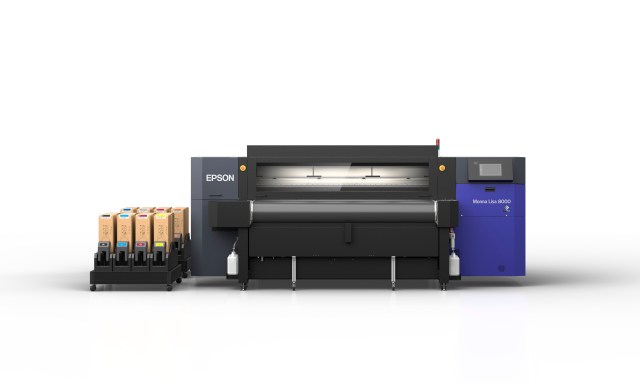
Showcasing printed fabric at the PayPal Melbourne Fashion Festival 2024
Epson Australia and the Australian Fashion Council (AFC) have jointly sponsored a study revealing Victoria as Australia’s thriving fashion hub with a clothing manufacturing sector valued at nearly $1 billion.
In collaboration with Epson Australia, the AFC engaged RMIT to evaluate the genuine worth of Victoria’s Textile, Clothing & Footwear (TCF) manufacturing sector. Set for publication next month, the comprehensive report titled ‘Moving the Needle: The State of Play of Victoria’s Textile, Clothing & Footwear Manufacturing Sector’ underscores Victoria’s position as the national leader in the industry, boasting the most comprehensive supply chain.
As unveiled by the AFC during a panel at the PayPal Melbourne Fashion Festival, key findings from the report include:
– Victoria’s TCF manufacturing industry is economically valued at $960 million, employing 10,300 people, surpassing all other states (with NSW as the second-highest at 9,000 employees).
– Victoria’s TCF sector exports stand at $318 million, surpassing its wine exports by $100 million.
– Victoria is strategically positioned to spearhead Australia’s shift towards a circular and sustainable economy, owing to its all-encompassing clothing ecosystem, covering fiber, manufacturing, retail, wholesale, repair, and second-hand retail.
The data underscores the sector’s undervalued significance to the broader economy, exposing the intricacies of this evolving industry, partially concealed by the current ABS classification system.
With its comprehensive ecosystem spanning fibre, manufacturing, retail, wholesale, repair, and second-hand retail, Victoria holds the most complete clothing supply chain in Australia. Marianne Perkovic, Chair of the AFC, emphasises Victoria’s unique opportunity to lead in sustainable manufacturing, fostering job growth and developing skills.
“Victoria can be a global leader in advanced, sustainable manufacturing while boosting jobs and developing skills in an industry that generates a huge $960 million. And this is only the beginning of what this industry can transform into, not only economically but environmentally, accelerating our just transformation into a circular economy by 2030 and net zero by 2050,” Perkovic said.
Despite a general decline in Australian manufacturing, the initial research indicates stability in employment, exports, imports, and revenue in the TCF sector. The AFC is advocating for the reclassification of hidden industry segments by the ABS, seeking accurate data to support education, training, and upskilling.
Dr. Jenny Underwood, Associate Dean of Fashion and Textiles Technology at RMIT, stresses the importance of considering every phase of the clothing life cycle, transitioning from a linear to a circular approach.
The report recommends optimising micro-factories, a testament to the sector’s adaptability and a beacon for the future of sustainable production. Micro factory technology, embracing the latest digital printing technology, reduces waste and enhances efficiency, aligning with circular economy principles and delivering speed to market.

Craig Heckenberg, Managing Director of Epson Australia, highlights the significance of embracing digital printing technology in micro-factories, reducing waste and enhancing efficiency in alignment with circular economy principles.
Craig Heckenberg says, “Our partnership with the AFC has allowed us to reveal game-changing data that will be an important tool to advance and futureproof an industry with huge potential, both economically and environmentally. Epson Australia is fully committed to supporting and helping grow the fashion and textile industry by using all of our local expertise and resources. We are excited at the prospect and promise these first insights show and for Epson Australia to play a significant part in this journey.”
The AFC urges policymakers to provide targeted funding and support for initiatives like micro-factories, promoting circular economy practices and ensuring a prosperous, sustainable future for the sector. The final report is scheduled for release in April, promising insights into how this overlooked and undervalued sector can contribute beyond $960 million.
The initial report findings will be available from www.ausfashioncouncil.com starting from March 5, 2024.
Comment below to have your say on this story.
If you have a news story or tip-off, get in touch at editorial@sprinter.com.au.
Sign up to the Sprinter newsletter
